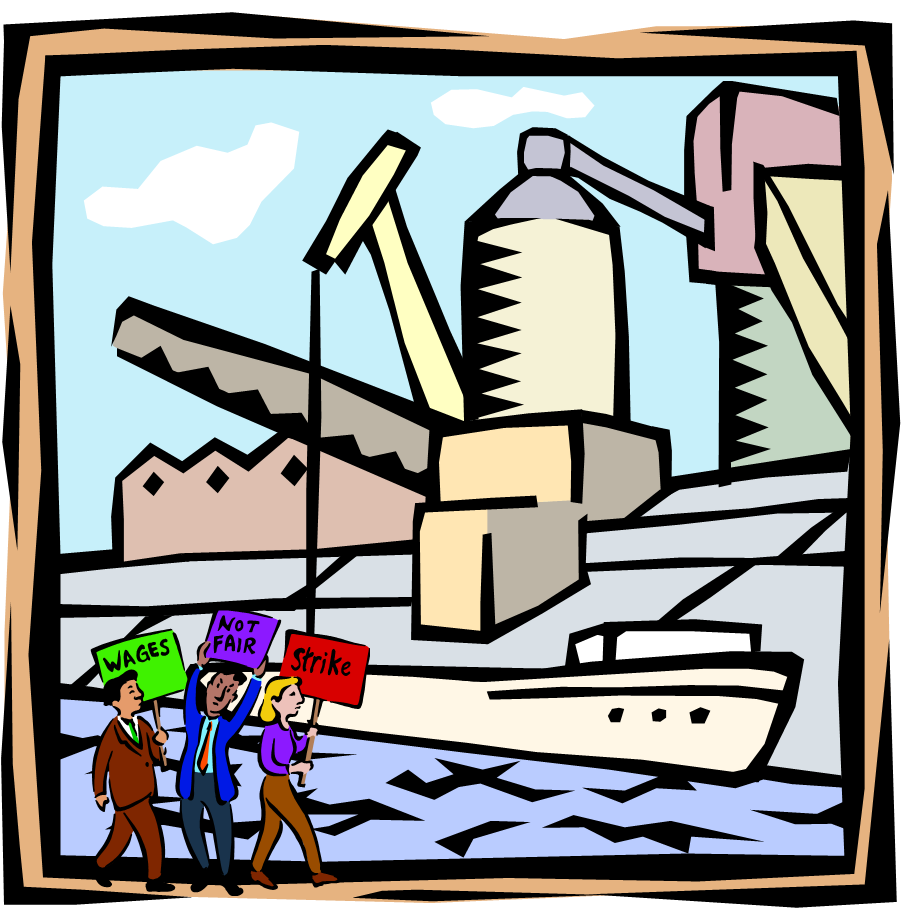Will Shutdown Ports Disrupt Import and Export Ops December 12th?
Occupy Strikes Back: 12.12.11—It reads like a movie poster. The people who wrote the slogan, probably going for an epic sound with the Star Wars title reference, probably wouldn’t compare the Occupy Movement to the evil Empire in George Lucas’ famous films. They would be much more likely to relate to the Rebel Alliance if they were to use a Star Wars metaphor for the movement. Yet the most recent plans of the Occupy Movement is a much more ominous sound to some than the Imperial March could ever be.
The Occupy Movement plans to shut down the U.S. West Coast ports this upcoming Monday, December 12th.
Can they do it? The logistics involved in disrupting some ports would be more difficult than others. The Long Beach-Los Angeles Port, for example, stretches over miles with many different gateways and terminals and would require a large show of people to shut down. Of course, it wouldn’t take even close to 99% of Los Angeles’ nearly 10 million population showing up and forming picket lines to affect the import and export operations.
different gateways and terminals and would require a large show of people to shut down. Of course, it wouldn’t take even close to 99% of Los Angeles’ nearly 10 million population showing up and forming picket lines to affect the import and export operations.
On November 2nd, Occupy Oakland protestors stopped the night operations at the Port of Oakland.
With the growing momentum of the Occupy Movement, port shutdowns are very possible.
The Port of Oakland is certainly taking the Occupy Movement’s plan to shutdown ports seriously. The Board of Port Commissioners for the Port of Oakland sent a letter to the community on December 4th imploring the people to help keep the port open. The letter’s opening line reads, “From dockworkers to engineers, truckers to office workers— the Port of Oakland is where the 99% work.”
They are also directing anyone who will listen to a Keep the Port Open website. The stance of the Board of Port Commissioners is that shutting down the port will accomplish nothing but hurting working families and community.
The Port of Oakland plea may be falling on deaf ears as the Occupy Movement’s resolve does not seem to be shaken.
Among the Occupy Movement’s normal stance against the role and power held by multinational corporations, major banks, and Wall Street over the democratic process, the Occupy Movement says that shutting down the West Coast ports is also standing in solidarity with The International Longshore and Warehouse Union (ILWU). The ILWU says the opposite.
Officially, the ILWU is against the shutdown of west coast ports by the Occupy Movement.
According to an article from the Journal of Commerce, “the ILWU said although the union shares Occupy Wall Street’s concerns about corporate abuses and the future of the middle class, the call by Occupy forces to shut down West Coast ports was made without any consultation with the union.
“’Only ILWU members or their elected representatives can authorize job actions on behalf of the union, and any decisions made by groups outside of the union’s democratic process do not hold water, regardless of the intent,’ said ILWU President Robert McEllrath.”
Since the protest is not planned by the union, the union will not recognize people with signs standing in front of shipping gateways at ports to be a picket line. The plan is that as long as it is deemed safe for the workers, they will go to work at the docks on Monday.
However, the official stance of the ILWU may not be a full picture of the union’s attitude toward the situation.
“If ILWU members don’t honor the community picket lines, it will cause an irreparable breach with the community. If the ILWU can’t support the community, why should the community support the ILWU…” said Clarence Thomas, third-generation longshoreman in Oakland and past secretary-treasurer of ILWU Local 10 in a Workers World interview with reporter Cheryl LaBash.
Interviewed at the same time was Leo Robinson. He’s retired, but is a former member of the ILWU Local 10 executive board. Mr. Robinson said the union has observed community picket lines “any number of times” and sited a 1977 community picket line at Pier 27 against South African cargo because of apartheid which was not authorized by the union as an example.
Clarence Thomas could not have stated it much stronger than as he was quoted at the end of the interview, “The ILWU is not some special interest group. We are a rank-and-file militant, democratic union that has a long history of being in the vanguard of the social justice and labor movement.
“We don’t cross community picket lines.”
It will be seen on Monday if the Occupy Movement protests will stop workers from going to their jobs and disrupt ocean freight import and export operations at U.S. West Coast ports.
![]()
Source: Economy
